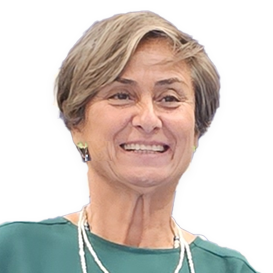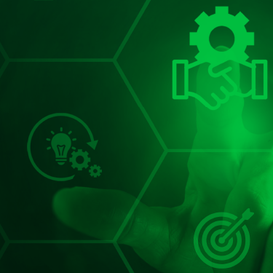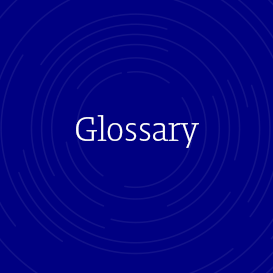ITEA - The fast track to software innovation

In ITEA, we aim to create societal and economic impact as the Return On Investment (ROI) for both industries and Public Authorities.
The investment of Public Authorities, from public taxes, needs to create impact for the people of the country and, preferably, even globally. The investment of industry needs to create economic impact for the project partners and beyond, for other players in the ecosystem and value chain. Economic impact can take the form of creating revenues for the company, increasing the number of employees and/or setting up a new business line, partnerships or a spin-off company.
ITEA projects have a proven track record of results and a high ratio of ROI, making ITEA a strong instrument for creating value for money. In addition to the country-related impact, there are several examples including general business impact. ITEA currently has 325 completed, running and labelled projects with a total budget of more than €3.7 billion, involving over 35,000 person years from 37 countries. This section contains information related to the ROI of ITEA projects for a set of countries with strong participation in ITEA, with two highlights of figures and data that are illustrative for the impact within the given country. The number of funded partners provides an idea of the possible multiplier effect of these outcomes. Each country has many more results that can be found on our website and in ITEA’s Impact stream: https://itea4.org/impact-stream.html.
Belgium

Belgium has been supporting ITEA since the start of ITEA in 1998 and there are currently 121 (labelled, running or completed) ITEA projects with Belgian participation. These projects have a total budget of €228 million, invested by Public Authorities and industry, and 350 funded partners. Below are examples of the societal and economic impact of ITEA projects with Belgian participation, including employee and revenue increase, new business models and solutions:
- The projects Flex4Appsand MOS2S have supported the very fast growth of participating Belgian SMEs Kiswe and Datastories, allowing them to increase, up to tripling, the number of employees.
- The projects Reflexion, C³PO, FUSE-IT and M2MGrids have supported large companies Barco, Niko and Nokia. Barco was able to create new business models and sell solutions that were both estimated at €20 million thanks to Reflexion and C³PO, and FUSE-IT has supported Niko in achieving double-digit growth during the last five years. From its work in the M2MGirds project, Nokia has successfully established a commercial venture around energy orchestration, supporting an important paradigm shift going on in the renewables-driven smart grid. The full R&D team of this venture is based in Belgium.
Canada

Since 2014, Canada has been contributing to ITEA projects with strong SMEs and Canada there are currently 30 (labelled, running or completed) ITEA projects with Canadian participation. These projects have a total budget of €47 million, invested by Public Authorities and industry, and 64 funded partners. The market impact assessment input from only five Canadian SMEs shows that:
- These Canadian SMEs created eight new products, five new services and seven new processes and almost €1.3 million as fast exploitation and revenue exceeding €25 million is expected in the five years after project completion.
- SME Convergent was able to access a new market and Esri Canada decided to allocate resources after participation in ITEA and become the first Canadian Board member of ITEA.
Finland

Finland has participated in ITEA since the first Call as well, with Finnish participation in 121 (labelled, running or completed) ITEA projects and a total project budget of €466 million, invested by Public Authorities and industry, and 538 funded partners. Both SMEs and large industry have created clear business impact:
- For Tracker, the estimated commercialisation impact of the M2MGrids project including device and related services sales was about €3 million in 2020.
- ACCELERATE partner Bittium grew significantly and evolved to a clearly more product- and innovation-driven company than previously, with a net sales increase of ~16% between 2018 and 2019 while Ericsson has been using the knowledge and relations resulting from APPSTACLE for its software R&D transformation to open-source software. A separate Ericsson-owned open-source software development company has been established in Finland, which is one of its first subsidiaries.
France

France, a very strong supporter of ITEA 1 and ITEA 2, is again showing interest in ITEA 4. In total, there have been 146 ITEA projects (one of which is still running) with French participation, with a total project budget of €934 million, invested by Public Authorities and industry, and 814 funded partners. Thanks to participation in ITEA projects, several large industry partners were able to either award multimillion-euro contracts or possibly save multimillion euros:
- After the completion of FUSE-IT, Airbus CyberSecurity was awarded a multimillion-euro contract with an important gas transportation company while ADAX is known to have directly contributed to €7 million of the €33 million turnover recorded by Cassidian Cybersecurity SAS (now Airbus Defence and Space) in 2014 and led to the recruitment of six engineers.
- During the CAP project, the French La Poste Group examined fraud on franking marks. These control mechanisms may enable several million euros to be recovered while for EDF, which uses MODRIO results regarding the modelling of requirements to automate the Failure Modes, Effects and Criticality Analysis of safety critical systems, the expected gains are estimated to be around 30% of the cost of large projects.
Germany

Germany has also supported ITEA throughout its entire lifetime of 25 years and there are currently 98 (labelled, running or completed) ITEA projects with German participation, with a total project budget of €445 million, invested by Public Authorities and industry, and almost 650 funded partners. Large industry is well represented in these projects and their participation has contributed to improve their processes:
- M2MGrids allowed a prominent German sports car manufacturer to save over 13,000 developer days corresponding to a value of around five to seven million euros and M2MGrids partner Knorr-Bremse developed a new braking system that allows hardware tests, which are generally very resource consuming, to be reduced by 30%.
- Bosch now routinely uses the methods developed in M2MGrids for large software products with more than two million lines of code. Furthermore, the methods and tools are being applied in several other business units of Bosch, which can now use formal methods efficiently in real projects.
The Netherlands

The Netherlands has provided steady and strong The Netherlands support to ITEA since its start. There are currently 131 (labelled, running or completed) ITEA projects with Dutch participation, with a total project budget of €698 million, invested by Public Authorities and industry, and almost 540 funded partners. Both SMEs and large industry have benefited from the opportunities that have been offered and created:
- In Reflexion, Canon Production Printing developed an incredible maturity on the full digital loop, improving its mean time to repair for all new machines by 50%, while Philips boosted liver tumour detection accuracy by 26% in the BENEFIT project and thanks to participation in SoRTS will sell 50-100 systems in Europe in a new market, meaning an addition of more than 5% tto the MRI market of €4.5 bilion (in 2017).
- After the MoSHCA project, Evalan experienced a growth rate of 100% each year between 2016 and 2018. This growth is reflected in all metrics – employees, turnover, profitability etc. During that period Evalan added 40 FTEs to its payroll.
Spain

Spain has also been supporting ITEA since 1998. There are currently 169 (labelled, running or completed) ITEA projects with Spanish participation, with a total project budget of €342 million, invested by Public Authorities and industries, and 667 funded partners. Large industry, SMEs and universities are all well represented and creating impact:
- After completion of IMPONET, Indra’s iSPEED platform was implemented and used by Elektro from Brazil for the monitoring and control of the entire distribution network, which comprises more than 170,000 transformers and serves more than 2.4 million customers in a rural and urban hybrid environment. Indra hired roughly thirty new analysts/programmers because of all these new business developments.
- SPEAR project partner Sensing & Control Systems has three new industrial customers and was able to hire one additional employee while for Mondragon University, company requests for projects have increased yearly after completion of the ACCELERATE project. Often those projects are adopted by the company as solutions to their needs and about 15-20% of the students end up working there.
Sweden

Sweden is another country that has supported ITEA already for 25 years. There are currently 63 (labelled, running or completed) ITEA projects with Swedish participation, with a total project budget of €125 million, invested by Public Authorities and industry, and 277 funded partners. Swedish research institutes often take the lead in ITEA projects, and partly thanks to the good knowledge transfer the industry partners have created strong benefits and business impact:
- For Elekta, the results from the SoRTS project represent an order opportunity of over USD 700 million until 2019.
- SME Convergent was able to access a new market and Esri Canada decided to allocate resources after participation in ITEA and become the first Canadian Board member of ITEA.
Türkiye

Türkiye is one of the biggest supporters of ITEA and has been active since 2004. There are currently 126 (labelled, running or completed) ITEA projects with Turkish participation, with a total project budget of €104 million, invested by Public Authorities and industry, and about 450 funded partners. Both Turkish industry partners and SMEs have created remarkable impact in ITEA projects:
- C³PO allowed Mantis to develop new solutions, pushing up its annual revenue by almost 15% while Netcad developed Netigma and Netcad Digital Universe, which are marketed and sold in Türkiye and in the Middle East region, yielding in a revenue increase of 30%. Netigma is used extensively by local authorities (1000+ municipalities).
- BOR Software grew from two people at the start of BaaS to 15 people working in BaaS-based IoT products and services with an estimated income at around €1.5 million for the period 2017-2020. Spin-off companies IOTIQ GmbH and ERSTE Software Ltd were recently founded under the guidance of BOR, inspired by the knowledge gained in BaaS and its IoT focus.
Cross-border impact
ITEA is one of the main Eureka instruments, and its international character is one of its most prominent features. Although supported at the national level, the results and impact of ITEA projects go beyond national borders. In some cases, they even have a global impact. Below are a few examples. The ITEA Impact stream shows many more: https://itea4.org/impact-stream.html.
OPEES (2009-2012)
Both a pioneer and a catalyst

OPEES stood at the inception of two important trends: open collaboration with open source in industry and open-source tools for model-based systems engineering (MBSE). Neither of these trends was well developed in 2009, but more than a decade later, and with acceleration through the OPEES project, we benefit from both good open source MBSE tools and many open collaboration initiatives in industry. OPEES was both a pioneer and a catalyst in this evolution.
Currently, there are not only thousands of users of the MBSE tool Capella on hundreds of projects inside Thales, but also more than a hundred companies worldwide using it, including European organisations such as the European Space Agency, Ariane Group, Rolls Royce and Siemens, which rely on Capella in their System Modelling Workbench product. It also supports an ecosystem of European SMEs, like Obeo and Artal, that sell packaged products, support and expertise on top of Capella not only in Europe, but also in North America and in China.
FUSE-IT (2014-2017)
Striking commercial successes
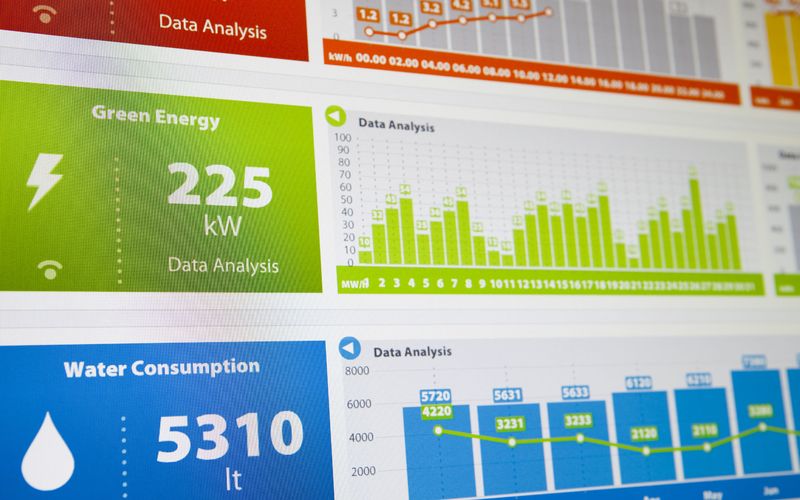
Since 2017, about €48 million in revenue has been reported in direct relation to the FUSE-IT project results. The most striking commercial successes include:
- 17 system integration operation contracts in the field of smart building management and optimisation.
- 25 contracts won in the field of critical infrastructure protection against cyber and physical threats.
- The successful market introduction of a start-up company delivering SaaS platform services for enhanced the control and management of sensitive building information. The project has led to the acceptance of four patents.
ASSUME (2015-2018)
Strongly improving engineering tools in the mobility domain

The ITEA project ASSUME has enabled the use of the project results among different tools including:
- A 50% increase in the (run-time) performance of analysis tools.
- A 60% reduction of spurious warnings in analysis tools for single cores.
- An almost 100% reduction of error classes in single core analysis.
- An 80% or more success rate of traceability of runtime errors back to the model level.
- A 40% cut in effort to inspect run-time errors in a typical industrial setting.
APPSTACLE (2016-2019)
Unifying technology

In November 2019, APPSTACLE launched the first release of the Eclipse KUKSA platform that unifies the technologies across the vehicle, IoT, cloud and security domains to provide an open-source ecosystem to developers which addresses the challenges of the electrified and connected vehicle era. KUKSA shows large companies that there is more to be gained from sharing data than from protecting it within proprietary solutions. As more vehicles become connected, more applications and services will emerge. Companies can therefore enhance the business domain while increasing the size of their own share.
SPEAR (2017- 2020)
Slowing the speed of climate change
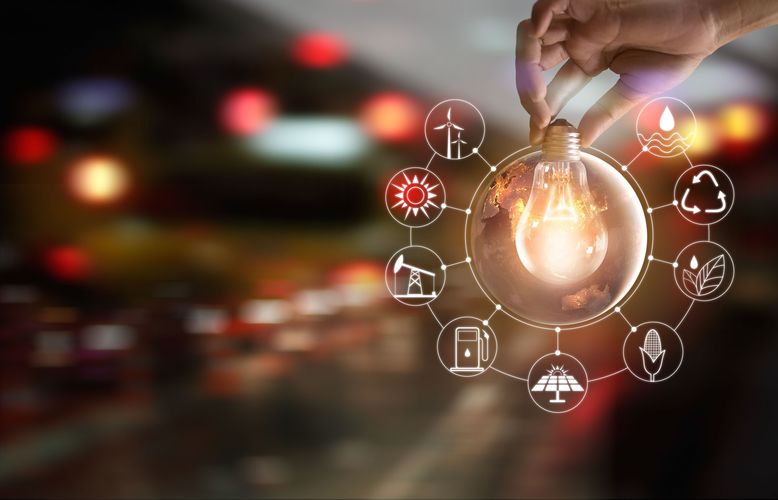
The SPEAR project allows for a greater uptake of renewable energies, such as solar and wind, which were previously difficult to optimise on a large scale due to their weather dependency. This gives SPEAR a vital role in reducing CO2 emissions and slowing the speed of climate change throughout society as a whole.
Through the smart selection of energy sources, the smart adaptation of process-relevant parameters and the reduction of power peaks, SPEAR has been able to reduce energy costs by roughly 10%.



